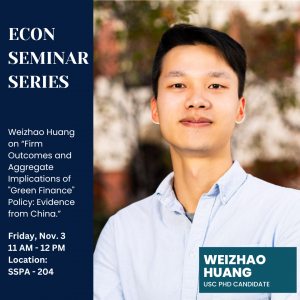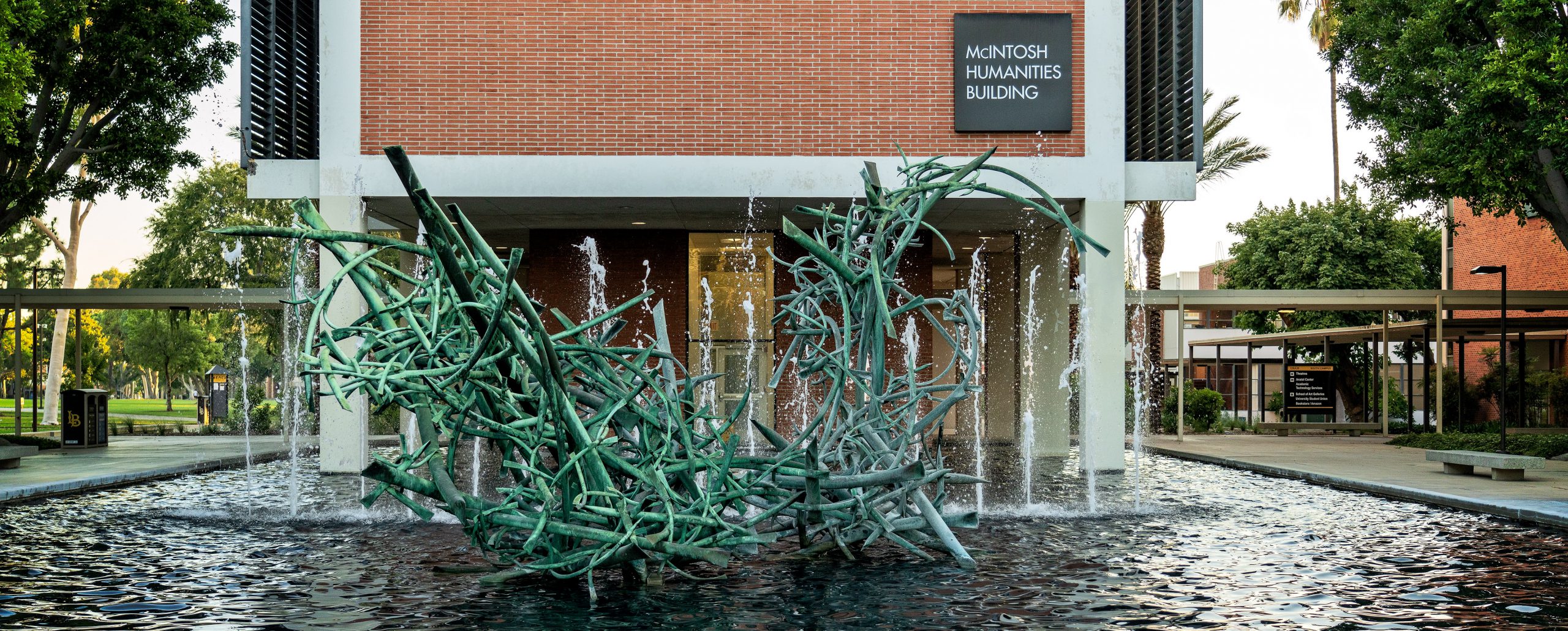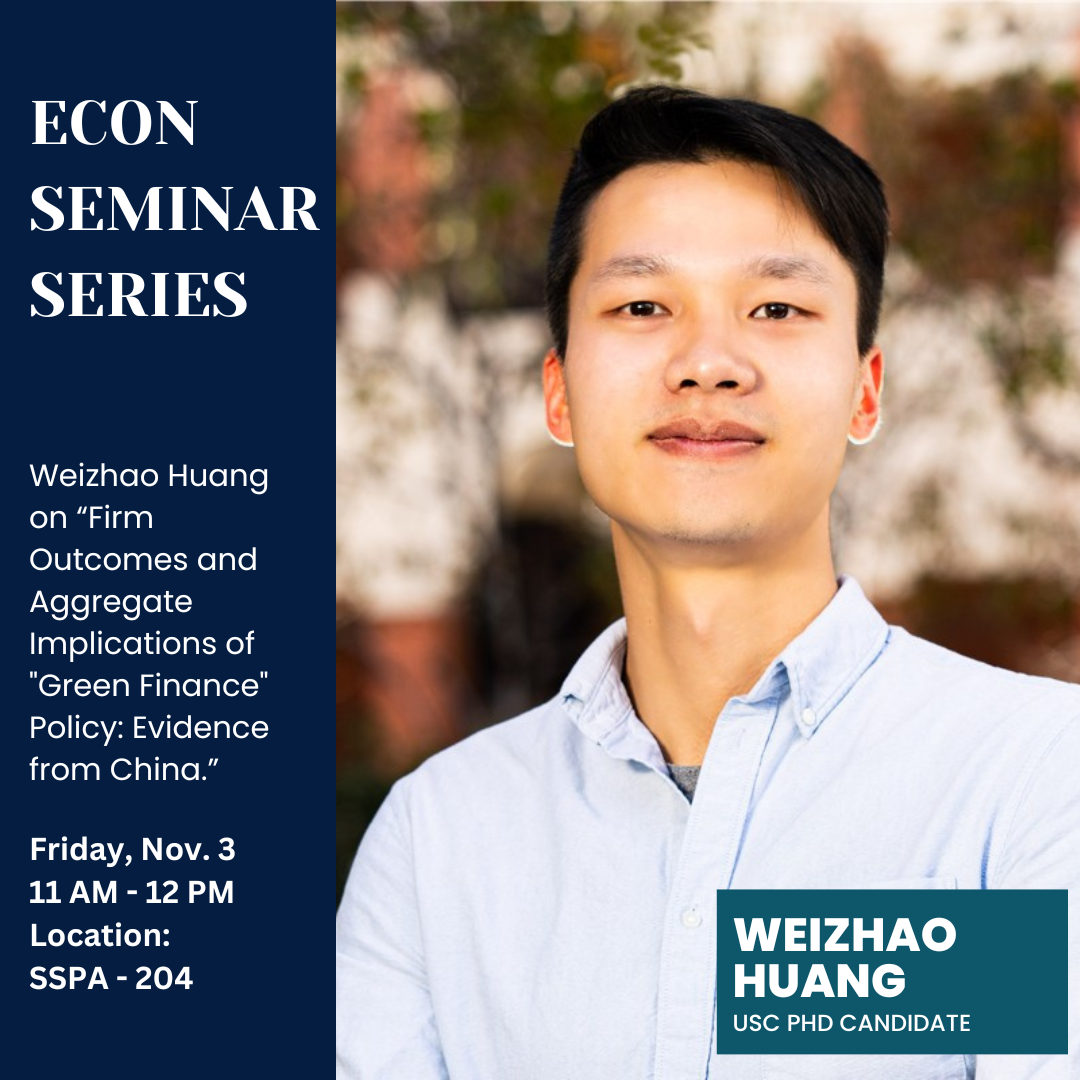
- This event has passed.
Department of Economics Seminar Series: Weizhao Huang from the University of Southern California
November 3, 2023 @ 11:00 am - 12:00 pm
 The Economics Department Seminar Series continues with its seventh talk which was originally scheduled for Zoom, but will now be held in-person this Friday, November 3 from 11:00am-12:00pm in SSPA-204. Our speaker will be PhD Candidate Weizhao Huang from the University of Southern California who will present a paper entitled “Firm Outcomes and Aggregate Implications of “Green Finance” Policy: Evidence from China“.
The Economics Department Seminar Series continues with its seventh talk which was originally scheduled for Zoom, but will now be held in-person this Friday, November 3 from 11:00am-12:00pm in SSPA-204. Our speaker will be PhD Candidate Weizhao Huang from the University of Southern California who will present a paper entitled “Firm Outcomes and Aggregate Implications of “Green Finance” Policy: Evidence from China“.
Weizhao’s talk will discuss the effect of China’s “green finance policy” on firm behavior in green finance pilot zones. In doing so, a comparison across economic and environmental performance and allocative efficiency is made among firms before and after the implementation of the policy. Weizhao finds that firms in pilot zones became more energy efficient after the policy change when compared to firms in non-pilot zones. Please see the abstract below for more details:
“This paper examines empirically and theoretically the effect of ”green finance policy” in China, and specifically the establishment of green finance pilot zones. I construct a dataset to explore the policy’s impact on the economic, environmental performance of, and allocative efficiency among, listed firms, using ”Difference-in-Difference” and ”triple difference” econometric designs. I find that firms in pilot zones—and especially low-polluting firms—became more energy-efficient and applied for more green patents relative to their counterparts in non- pilot zones. High-polluting and privately-owned enterprises in pilot zones saw a relatively large increase in their debt ratio after implementation of the policy. Additionally, I show that the policy significantly increased metrics of output misallocation among firms in pilot zones. I develop a stochastic dynamic general equilibrium model featuring heterogeneous—green and dirty—firms distinguished by emission intensity, abatement-elastic credit constraints, and a pollution externality. When calibrated to match features of Chinese listed firm data, the model successfully reproduces key business cycle moments. Counterfactual experiments show that differential leverage rates among firms can reduce emissions by up to 0.05 percent, and improve long-term social welfare by 0.013 percent with optimally determined carbon tax rates.“

